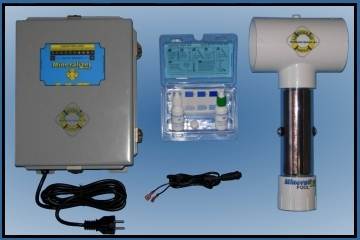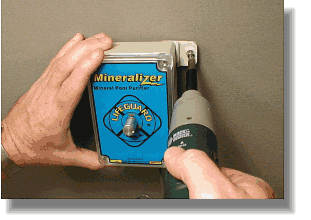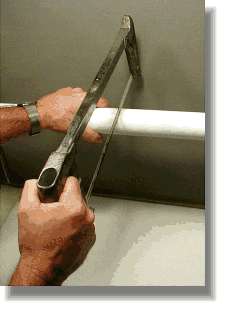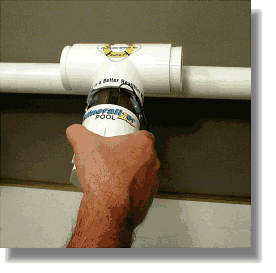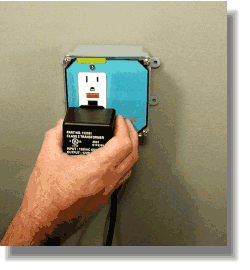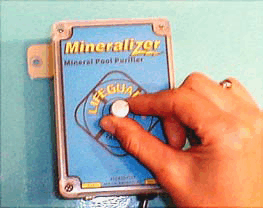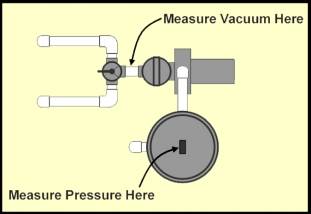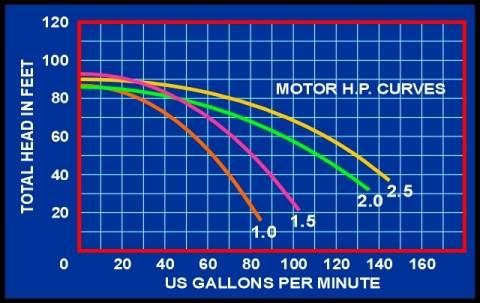|
COPPER/SILVER ION GENERATOR
Model M403
COPPER/SILVER ION GENERATOR Deluxe Model M403 designed for commercial pools Kit Includes: Multiple LED display
NEMA/EEMAC4 rated metal enclosure with heat sink and internal 3.3A swithching power supply, wires dirctly into 100-240VAC 50-60Hz power source. Heavy duty oversized copper/silver electrodes Copper color match test kit How does it work ? Lifeguard Purification Systems Inc. has adapted NASA technology to bring you the safest, healthiest, most cost effective way to purify your pool. Safe variable low voltage DC current is conducted into the chamber and electrolysis takes place. Positively charged ions of copper and silver are released. Copper is a natural toxin to algae and bacteria, and silver to bacteria and virus. Since copper/silver ions do not oxidize (burn-up) sweat, hair oil, bird droppings, etc., a low dosage of chlorine, bleach, or non-chlorine granular shock is needed once a week to keep the pool sanitized. When properly measured, this chlorine "shock" will burn off quickly, leaving the highest water quality you've ever swam in! How Does Chlorine Purification Differ From Copper/Silver Ion Purification ? Chlorine oxidizes (burns up) organic compound like algae, viruses, and bacteria (your eyes, hair, skin, etc.). Copper/Silver ions, on the other hand, are toxins which poison and kill organic contaminants while having no effect on the human body. Cu/Ag ions are pH neutral and non-corrosive. Question and answers about the MINERALIZER !
What is a MINERALIZER ionic generator? Lifeguard Purification Systems Inc. has adapted NASA technology to bring you the safest, healthiest, most cost effective way to help purify your pool with reduced chemical use. How does it work? Variable low voltage DC current is conducted into the chamber and electrolysis takes place. Positively charged ions of copper and silver are released; copper is a natural toxin to algae and silver to bacteria and What's so good about ionizer water? The water is purified naturally by minerals. The water has a refreshingly clean and natural smell, soft to the touch, and glistening look, plus a sweet smooth mountain stream like taste. Is it harmful in any way? The concentration of copper and silver ions released are lower than most types of bottled mineral water. (Drinking water EPA Max=l.3PPM copper purifier range -.2-.4PPM copper) So, in essence, your pool water is clean enough to drink. Live fish and aquatic animals could easily live in your pool like an aquarium. That is how safe and pure your water can be. What's so bad about chlorinated water? While bathing or showering in chlorinated water, humans can absorb 8 times more chlorine than drinking it. Chloramines are organic contaminant/chlorine compounds commonly found in pools and spas. Chlorine has been hugely beneficial to mankind, but today there are ways, like non-chemical purifiers to eliminate most chlorine consumption by the end user. Is it easy to operate? These purifiers automatically come on when your timer starts the pump. An ion level dial on the controller is set to your pool size and personality. Ionized water is not affected by heat or sunlight like chlorinated water so purification is continuously assured in both pools and spas, heated or, unheated, indoors or out. How much savings will there be? You will reduce chemical costs per year. Electrical consumption equates to a very small light bulb. Is it easy to install? SIMPLE! Mount the controller on the watt, cut a 3 1/2" section of PVC pipe and glue in place the ion chamber. Next plug in the UL rated transformer power supply in a GFCI protected 11OVAC outlet. Nothing to it! Installation: The Mineralizer Copper/Silver Ionization system can easily be installed by any "handy" homeowner in about an hour or less following the simple installation instructions below. Although the installation procedure is quite simple, we recommend that you familiarize yourself with these instructions and plan your course of action before starting. Some homeowners may opt to contact a handyman or a professional plumber to complete the installation for them. 1) Mount Controller On Wall. Find an open, clear space on the wall to hang the controller assembly. Mark the holes and mount the controller on the wall using the supplied mounting brackets and hardware. Be sure the placement of the controller is such that the wires will reach from the controller to the electrical outlet and from the controller to the electrode chamber. 2) Measure & Cut PVC Pipe. Find a clear 6" section of pipe before or after the filter (preferably after the filter, this way only clean water passes through the chamber). Measure the diameter of your existing pipe and make a cutout according to the pipe's diameter: A) If your pipe is 1 1/2" in diameter then measure and cut out a 3 3/8" section of PVC pipe. Use the enclosed reducing bushings to convert the "T" chamber from 2" to 1 1/2". 3) Install the Mineralizer "T" Chamber. File any rough edges from the pipe. Now slip the electrode "T" chamber assembly into place (unglued) and check for proper fit and clearances. Clean all pipe fittings with primer/cleaner before gluing together. If you need to use the reducing bushings, glue them to the "T" chamber first!! 4) Plug Into GFCI Outlet. Connect the wires from the controller to the electrode chamber and from the power supply to the controller. Plug the transformer power supply into a 110VAC outlet that is protected by a Ground Fault Circuit Interrupter (GFCI circuit). Check the voltage at the electrode terminals with a voltmeter. Voltage should vary from 0 Volts DC to approximately 10-11 Volts DC as output knob is turned from full counterclockwise position to full clockwise position. 5) Adjustment and Operation. Operation: A) Turn controller output power up to 100% and let pump run for 24 hours. B) After 24 hours test the Copper level with the test kit included. C) After the Copper level reaches the recommended 0.3ppm to 0.4ppm level, reduce pump run time to normal. D) Reduce output power level to 50%, check Copper level weekly, and adjust output as necessary until the unit is "dialed-in" to automatically maintain the correct Copper level. After this initial dial-in period you can reduce the frequency of Copper tests to once or twice per month. E) Add a low dosage of chlorine weekly or when water gets that "dull" look. Most average sized pools only require about 1/2 to 1 gallon of chlorine in an average week. When properly measured, this chlorine "shock" will burn off in a few hours, leaving the highest water quality you've ever swam in! Note: More detailed information on installation, operation, trouble-shooting, and water chemistry is included in the manual. Pump Run Time:
How long should that be?
How to determine pump head: A) Measure the vacuum pressure at the pump inlet and multiply by 1.13. A reading of 15"Hg times 1.13 equals 16.95 feet of head. B) Measure the filter pressure (with a clean filter) and multiply by 2.31. A reading of 20psi times 2.31 equals 46.2 feet of head. C) Add the two together to get the total resistance in feet of head. 16.95 plus 46.2 equals approximately 63 feet of head.
|


